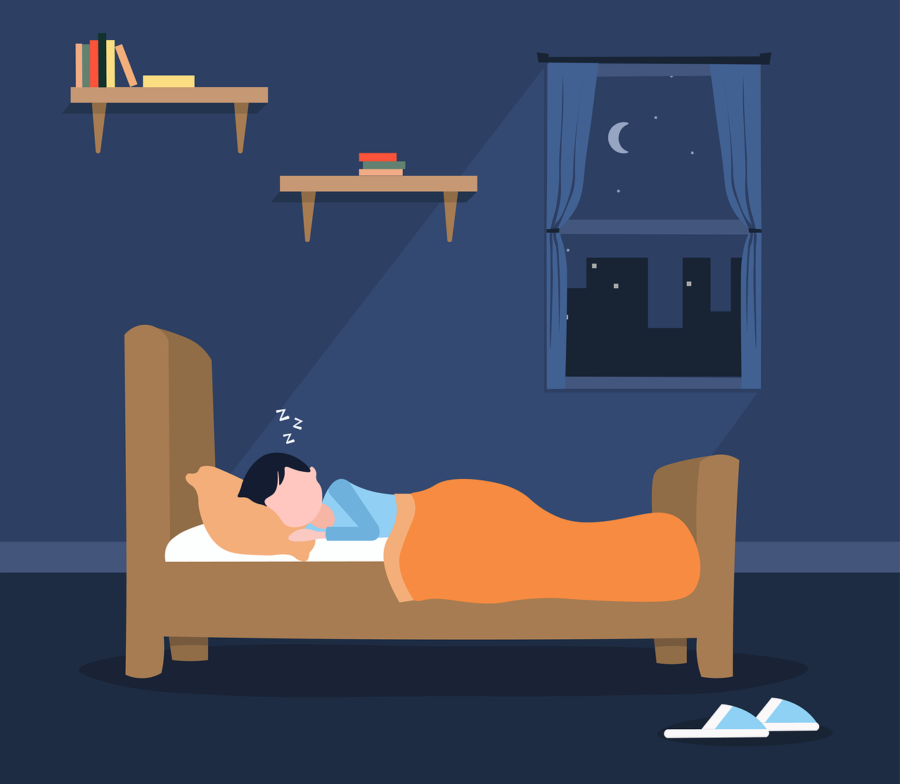Sleep is essential for overall health and well-being, playing a vital part in both physical and internal functions. Getting enough quality sleep is vital for maintaining energy situations, cognitive function, and emotional stability. Also are several reasons why sleep is good for you.
Firstly, sleep is fundamental for physical health. During sleep, the body goes through various restorative processes. This includes muscle form, kerchief growth, and protein emulsion. Sleep also plays a significant part in the vulnerable system. Respectable sleep helps to regulate vulnerable responses, making the body more flexible against infections and ails. Studies have shown that individuals who don’t get enough sleep are more susceptible to snags and other infections. Also, sleep contributes to maintaining a healthy weight. Lack of sleep can disrupt hormones that regulate appetite, leading to increased jones and gluttonously.
Secondly, sleep is vital for cognitive function and internal performance. During sleep, the brain processes and consolidates information acquired throughout the day. This is particularly important for knowledge and memory retention. A good night’s sleep enhances problem-solving chops and creativity, allowing individuals to think more fluently and make better opinions. Again, sleep deprivation can lead to dropped attention, impaired judgment, and slower response times. It can also contribute to internal health issues analogous to anxiety and depression. A well-rested mind is better equipped to manage stress and maintain emotional balance.
Also, sleep has a profound impact on mood and emotional regulation. When we are well-rested, we tend to be more positive, patient, and flexible in the face of challenges. On the other hand, lack of sleep can lead to irritability, mood swings, and increased emotional perceptivity. Habitual sleep deprivation has been linked to advanced situations of stress and anxiety, creating a cycle that can be hard to break. Prioritizing sleep can meliorate overall mood and contribute to a more positive outlook.
Likewise, sleep plays a part in cardiovascular health. Disquisition indicates that shy sleep is associated with increased trouble of heart complaints, hypertension, and stroke. During sleep, the body regulates blood pressure and heart rate, allowing the cardiovascular system to rest and recover. Constantly getting enough sleep can help maintain a healthy heart and reduce the trouble of developing serious health conditions.
In terms of life, studies have shown that individuals who constantly get respectable sleep tend to live longer, healthier lives. Sleep helps to reduce the trouble of habitual conditions and promotes overall well-being. Prioritizing sleep can lead to a healthier life, encouraging individuals to engage in physical exertion and make better salutary choices.
To reap the benefits of sleep, it’s essential to establish healthy sleep habits. This includes setting a harmonious sleep schedule, creating a comforting bedtime routine, and icing a comfortable sleep terrain. Limiting screen time before bed and reducing caffeine and alcohol input can also improve sleep quality. It’s important to listen to your body and prioritize sleep as a pivotal element of a healthy life.
In conclusion, sleep isn’t just a luxury; it’s a necessity for optimal health and well-being. From physical restoration to cognitive function and emotional stability, the benefits of sleep are far-reaching. By prioritizing sleep and espousing healthy sleep habits, individuals can enhance their quality of life, meliorate their health, and achieve their pretensions. Flashback, a good night’s sleep is one of the simplest and most effective ways to invest in your health.





























